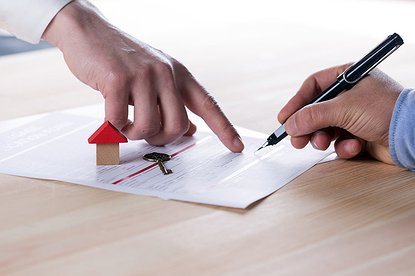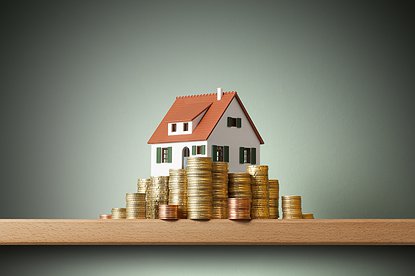Get Pre-Approved Now
Foreclosure or Bankruptcy: Will You Lose Your Home?
Use the Code Below to Embed this Infographic into Your Website!
If you are unable to pay your mortgage payments or other obligations, foreclosure may be in your near future. Foreclosure is a process by which your lender determines that you are financially unable to repay your debt, so it starts the procedures required for recouping the value of your loan. Will you lose your home during a foreclosure or bankruptcy? It depends on the situation. Here are your options, including Toronto second mortgages.
#1 – Refinance Your Mortgage
If you have difficulty making your mortgage payments because they are simply too high, then refinancing your mortgage may help. There is a difference between a refinance and a Toronto second mortgage; when you refinance, you replace your existing loan with another one rather than assuming the risk of two outstanding mortgages at the same time. For instance, if you have 20 years left on a 30-year mortgage and you decide to refinance, you can opt to pay the remainder over a new 30-year term to lower your monthly payments significantly, allowing you to catch up on your payments and avoid foreclosure. Of course, this depends on your lender and your credit.
#2 – Second Bad Credit Mortgages in Toronto
Another option involves contacting a private lender to get a Toronto second mortgage based on your home equity. Essentially, your home equity consists of money you have already paid toward your home as collateral, and the more you have paid, the more you can access. It exists as a line of credit, so you only have to pay interest on the amount you choose to use. Thus, it is possible to utilize the equity in your home to catch up on your mortgage payments and avoid foreclosure. However, you should consider this very carefully as it adds to the amount of money you need to repay each month.
#3 – File Bankruptcy
Although no one wants to file for bankruptcy, it is sometimes the best choice. If your bank threatens foreclosure (or if you are already in foreclosure) and if your debt is greater than your assets, you qualify for bankruptcy. Bankruptcy applies to unsecured debt, or debt for which there is no collateral. Since your home is your collateral in your mortgage, bankruptcy does not apply, but it does prevent any creditor - including your mortgage provider - from taking further action against you for a while. Although this is a delay tactic more than a permanent solution to keep you in your home, it might provide you with enough time to get your payments caught up.
Of course, the best way to keep your home is to avoid foreclosure and bankruptcy in the first place. If your poor credit mortgage payments are too high or if you are facing an extraordinary financial situation, contact a private lender for more information, or contact your mortgage provider to ask questions about refinancing. These options may give you just enough time to get caught up on your payments, avoiding foreclosure and the need to file bankruptcy.




